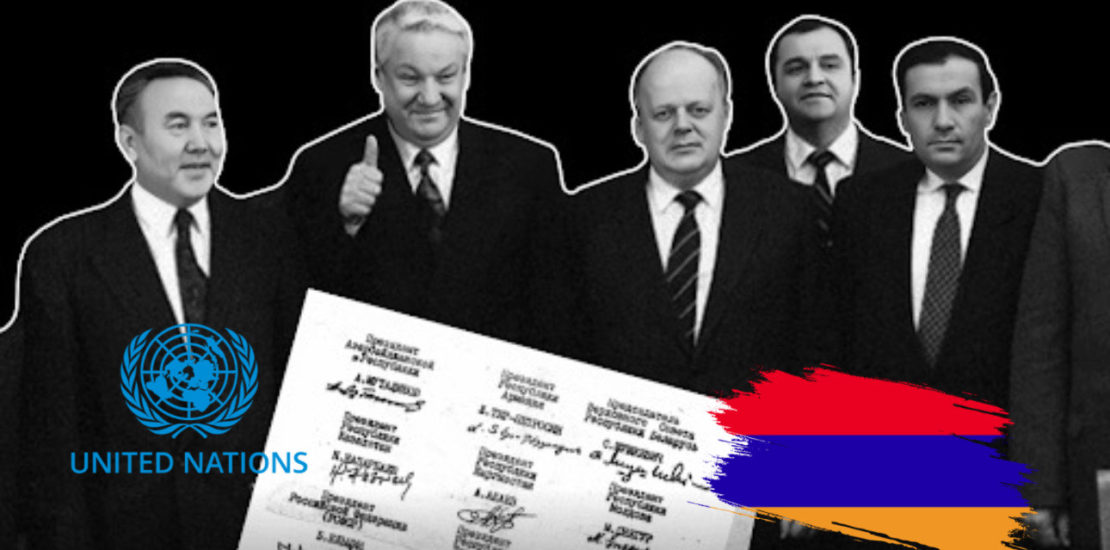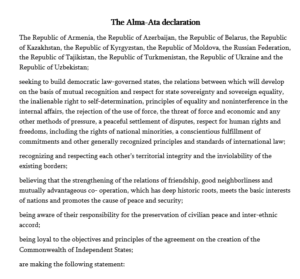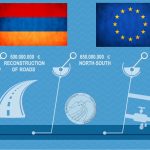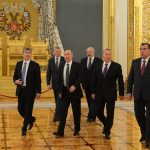- 10 June, 2024
- Foreign Policy

Recently, in the context of border demarcation between Armenia and Azerbaijan, there is a lot of talk about the Alma-Ata Declaration. The Union of Informed Citizens tried to look at that declaration from a different perspective and evaluate its role in the process of Armenia’s independence.
At the end of the 80s and the beginning of the 90s, parallel to the collapse of the Soviet Union, the process of independence of Armenia was underway.
From the declaration to a referendum
On August 23, 1990, at its first session, the Supreme Council of the Armenian SSR adopted a declaration on the independence of Armenia, which kick-started the process of establishing the independence of Armenia.
“Expressing the united will of the Armenian people, aware of its historic responsibility for the destiny of the Armenian people engaged in the realization of the aspirations of all Armenians and the restoration of historical justice, proceeding from the principles of the Universal Declaration on Human Rights and the generally recognized norms of international law, exercising the right of nations to free self-determination, based on the December 1, 1989, joint decision of the Armenian SSR Supreme Council and the Artsakh National Council on the “Reunification of the Armenian SSR and the Mountainous Region of Karabakh,” developing the democratic traditions of the independent Republic of Armenia established on May 28, 1918…”
On September 21, 1991, a referendum was held based on the decision of the Supreme Council of the Republic of Armenia “to hold a referendum on withdrawal from the USSR” on the territory of the country, in which 94.39% of voters voted in favor of declaring independence.
However, neither the declaration of independence by the Supreme Council nor even the independence referendum was followed by the international recognition of Armenia. Months passed, but no country on the planet recognized the independence of Armenia.
International recognition of independence following the Alma-Ata Declaration
On December 21 of the same year, a meeting of the presidents of the former republics of the USSR took place in Alma-Ata, as a result of which the Alma-Ata Declaration was signed. It reaffirms the Belavezha Accords, by which the USSR ceased to exist. The Declaration establishes the format of the Commonwealth of Independent States and declares its principles.
With the Alma-Ata Declaration, in fact, the process of international recognition of Armenia’s independence began. According to the declaration, the Republic of Armenia was recognized as an independent state by the republics of the former USSR that joined the declaration, including the Russian Federation, Azerbaijan and others.
A few days later, on December 25, the United States of America recognized the independence of the Republic of Armenia. George Bush Sr. announced in his Christmas address that he recognizes the independence of Ukraine, Armenia, Kazakhstan, Belarus and Kyrgyzstan and that diplomatic relations will soon be established with these countries.
On the same day, Canada recognized the independence of Armenia, China recognized it on December 27, the United Kingdom, France, Germany, Italy, Iran, Greece and Turkey on December 31, Australia on January 6, 1992, and Japan on January 13.
Thus, the international recognition of Armenia’s independence began after the Alma-Ata Declaration signed on December 21, 1991. In other words, Armenia’s independence was finally confirmed by this declaration, and for the international community, Armenia became independent with this declaration.
The clauses in the document that stipulate the cessation of the existence of the Soviet Union and the independence of the member republics are the reason for the attitude of Russia and pro-Russian circles towards the Declaration. It is noteworthy that these realities fixed in the declaration are what Russian President Vladimir Putin called “the greatest geopolitical disaster of the century” in one of his famous speeches.
Nane Manasyan
Union of Informed Citizens NGO





